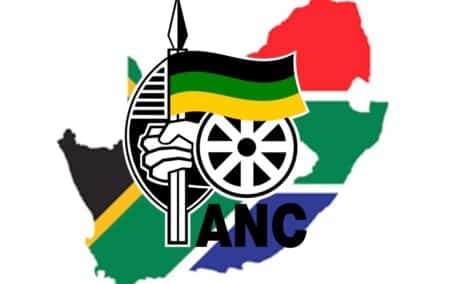A court action under way before the Pretoria High Court highlights one of the issues on which South Africa’s very future depends.
The case concerns the ANC’s ‘cadre deployment policy’, seeking to have cadre deployment and the party committee overseeing it declared unconstitutional and therefore unlawful.
Bringing the action is the Democratic Alliance. It hopes that a favourable finding will arm it with the tools to bring the practice to a halt.
As DA MP Leon Schreiber has written: ‘Should the court rule in our favour, we will be able to prevent future cadre deployment to the public administration not only by the ANC, but by every single political party in South Africa. Once the court has confirmed the principle that all public sector appointments must be based strictly on merit, fair selection processes and equal opportunities for all applicants regardless of party affiliation, any political party that seeks to interfere in appointment processes to the public administration would be guilty of an offence.’
The DA argues that this will turn governance in South Africa around. With undue political interference removed from South Africa’s civil service, competent and meritocratic institutions can arise, and the country’s arrested development can be resumed.
As things stand, there will not be much defense of cadre deployment. Evidence of the increasingly dire state of South African governance flows in relentlessly. Most recently at this writing (though perhaps by the time the reader has sight of it, a fresh disaster will be in the news), the auditor-general’s report has detailed the state of local government. This is the sphere of governance most directly related to people’s daily lives, and one particularly afflicted by dysfunction – to the point that governance failings are literally destroying real estate values and making properties uninsurable.
Auditor-General Tsakani Maluleke said in the report: ‘I firmly believe that courageous, ethical, accountable and citizen-centric leadership is needed to turn the tide in local government. That is why the theme of this general report is Capable leaders should demonstrate change by strengthening transparency and accountability.’
Especially vulnerable
Cadre deployment – to which municipal government has been especially vulnerable – has made the imperatives outlined in this comment. From time to time, this has even been acknowledged in official documents, albeit obliquely. In 2009, a report on municipal governance had this to say:
Evidence has been collected to dramatically illustrate how the political/administrative interface has resulted in factionalism on a scale that, in some areas, it is akin to a battle over access to state resources rather than any ideological or policy differences. The lack of values, principles or ethics in these cases indicates that there are officials and public representatives for whom public service is not a concern, but accruing wealth at the expense of poor communities is their priority.
Actually, the damage cadre deployment has wrought on South Africa is more profound. It has systemically corrupted the functioning of the state. Since the late 1990s, a party committee has operated outside of any public oversight to place chosen ‘cadres’ into positions of authority across society. Part of its strategy to spread its influence over ‘all levers of power’ – this was, incidentally, how it defined ‘transformation of the state’ – its intent was to politicize institutions that were explicitly designed to be independent and to operate impartially.
This was a violation of some of the most basic demands of South Africa’s constitutional order. Even if cadre deployment was placing only the best and brightest in their positions – the misapplication fallacy that the ANC raises to justify the policy, and promise to do it better in future – it would still fall outside the bounds of what is acceptable. The price for this is the integrity of South Africa’s constitutional democracy, not just the failure of governance, or as common parlance has it, ‘service delivery’.
Whether a win for the DA in this case will have a material effect is difficult to say. There actually is already a judgment – Voyu Mlokoti v Amathole District Municipality and Mlamli Zenzile (coincidentally around a contested municipal position) – that makes it clear in effect that cadre deployment is unlawful. Yet no one less than President Ramaphosa (and before the Zondo Commission, no less) affirmed his support for the policy. The president, it should be noted, chaired this committee during much of the ‘state capture’ period.
The risk exists that even with an adverse finding, things may continue apace, though with even less acknowledgement and more secrecy. (Africanist scholars have long argued that a central problem in the continent’s governance has been the use of institutions to provide a veneer of respectability for the exercise of real power in the ‘informal’ realm. This has some relevance to South Africa.)
Powerful statement
Irrespective, a declaration of the unlawfulness of this would be a powerful statement denormalising the policy.
That the court case is being brought by the DA creates another interesting nuance. It’s accurate to say that the party receives a very mixed reception from many of the country’s thought leaders. It will quite probably be accused of politicking (which rather seems to be axiomatic for a political party), hypocrisy, being adversarial and a good deal more besides.
This would be unfortunate. Whatever the DA’s faults, on this issue it is entirely right and correct. Whatever its motivation, this is a fight for the future of the country. It deserves the support of all.
Its consequences could be far-reaching indeed.
If you like what you have just read, support the Daily Friend

